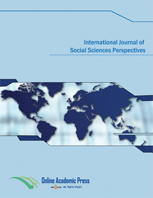The Quality of the Parent-Child Relationship and Children’s Family, School and Social Competences in Cyprus
DOI:
https://doi.org/10.33094/7.2017.2020.71.22.33Keywords:
Children’s self-esteem, Family relations, Hostility / Aggression, Neglect, Parental acceptance / rejection, Parental Education , School performance, Warmth/Affection.Abstract
The present study focuses on the effects of parenting practices on children’s family relations, school performance, social competence and children’s self-esteem based on the theoretical perspective of Rohner’s Parental Acceptance-Rejection Theory (PART). Our research considered parental demographic characteristics (age, gender, education, income) as independent variables to study their impact on parental practices and on the ways that these affect children’s family relations, school performance, social competence and children’s self-esteem. The Parental Acceptance-Rejection Questionnaire (PARQ-mother and father version) and the Questionnaire of children’s family relations, school performance, social competence and children’s self-esteem were administered to parents. The sample consisted of 336 fathers (77) and mothers (259) from Cyprus. Results indicated that parental acceptance, expressed through warmth, affection and loving behaviour is positively correlated with improved children’s family relations, higher school performance, better social competence and higher children’s self-esteem. On the other hand, parental rejection expressed through hurtful psychological and physical behaviours, affect children’s self-esteem and competences (school performance, socialization). Results showed that when both fathers and mothers displayed more acceptance and warmth their children tended toward better psychological adjustment.




